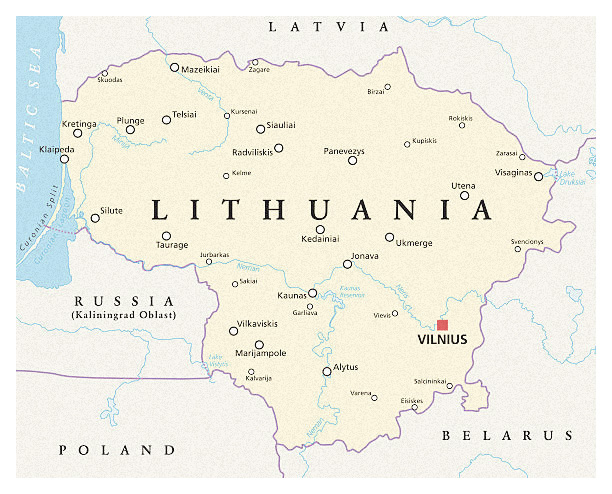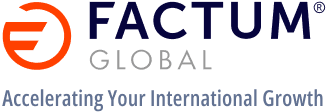
Market Spotlight:
Lithuania

Factum Scale:
-
Lithuania is ranked 11 out of 190 countries on the World Bank’s Ease of Doing Business Index and is in the top ten in terms of construction permits, property registration, and contract enforcement.
-
Lithuania is a “Supercenter” for technology investments by global firms, especially since it offers limitless foreign ownership rules and free access to all sectors (except those affecting national security).
-
It’s also an attractive hub for global goods and services companies seeking to reach other European markets. Since joining the WTO in 2002 and EU in 2004, Lithuania has focused on attracting foreign investment by improving and relaxing legal, financial, tax, and banking requirements.
-
Registering a company in Lithuania as an LLC is both quick to accomplish and inexpensive. It only takes about five days and costs less than USD$100.
-
Beginning in 2021, Lithuania embarked on an e-infrastructure plan to speed up the electronic communications infrastructure. Today, Lithuania is 1st globally for public Wi-Fi speed, 6th in the National Cyber Security Index, 3rd in 4G internet coverage, and 2nd in the EU for fiber optic coverage.
Fluency in English
Factum Scale:
-
Lithuania is ranked 19th on the Education First English Proficiency Index, and has positioned itself as a highly-proficient, English-speaking country. English is the most popular foreign language with 30% of the entire population having verbal skills and 80% among young people.
-
Considered to be one of the oldest surviving Indo-European languages, Lithuanian is the official tongue spoken by more than 80% of the population. Other notable minority languages are Russian (8%), Polish (7.7%), and Belarusian (1.5%).
-
5% of Lithuanians speak more than one language due to the rigid requirements of language courses mandated in schools.
Labor
Factum Scale:
-
Lithuania an attractive destination for foreign investors seeking skilled labor.
-
The latest labor force participation rate for Lithuania was 62%, near the global average (59%). Although Lithuania has a relatively small labor force compared to its larger European neighbors, its workforce is highly-educated and skilled.
-
Lithuania, like its Baltic neighbors, is experiencing an aging demographic with a projection of employment and working-age populations to decline over the period to 2030. Foreign companies may find opportunities to import skilled workers to support a future labor shortage.
-
The main industries supporting Lithuania’s economy are petroleum refining, food processing, energy supplies, chemicals, furniture, wood products, textile, and clothing industries. Lithuania also has a stronghold in fintech, logistics, biotechnology, and laser industries.
Society, Culture, and Business Etiquette
Factum Scale:
-
When meeting a business counterpart, it is customary to shake hands before and after, and state your full name and title if applicable. Last names are commonly used for addressing one another, unless otherwise agreed on.
-
Business discussions are typically avoided during lunch or dinner but may be discussed during breakfast. Be sure to accept food offerings and indulge in traditional dishes like cepelinai and vedarai.
-
Gifting: It is a courteous gesture to bring a gift (food or drink) when invited to private outings.
-
Lithuanians value punctuality, so be sure to be on time or early for your meeting. Lithuanians are also very detail oriented so be thorough in your discussions and carefully review documents before signing any agreements.
-
Lithuanian society is deeply rooted in its ties to the Catholic Church. The majority of the population identifies as Roman Catholic and has played a significant role in shaping the country’s culture and social life.
-
Lithuania has a rich calendar of festivals and traditions. Užgavėnės, the Lithuanian term for Shrove Tuesday (or Mardi Gras), is one of the most celebrated holidays of the year. As well, Joninės (“Midsummer or Saint John’s Day”) is a lively holiday celebrating the summer solstice.
Economic Stability
Factum Scale:
-
Lithuania is a bustling free market economy with a strong rule of law, structural reforms, and a robust private sector. It measures 20th of 176 ranked countries in the Economic Freedom Index, and 14th out of 44 countries in the region.
-
Due to increasingly uncertain geopolitical tensions in Lithuania’s backyard, a slowdown in exports is expected to continue in the coming years if conflicts persist (GDP growth in 2023 has stalled).
-
In the past few years, Lithuania experienced high levels of inflation (like many other European countries) but it has since cooled due to decreasing prices and declining energy prices.
-
Despite an economic contraction, the expected gradual increase in real GDP to 2.7% is anticipated as input expenses and consumer prices decrease, and investments are set to receive a boost from the Recover and Resilience Facility (RRF) funds.
-
Lithuania continues to be a global hub for technological innovations specifically in fintech with a vigorous startup scene. This is due in part to the regulatory sandbox launched by the Bank of Lithuania which allows companies to test new innovations under the supervision of a regulator in a live market environment.
Tariffs and Regulations
Factum Scale:
-
As a member of the EU, Lithuania uses the Common Customs Tariff (CCT). Though duty rates differ among member countries, duties in Lithuania are relatively low.
-
Lithuania engages in trade agreements at both the EU level and as a sovereign nation. Lithuania is a part of 41 trade agreements through the EU including free trade agreements (FTA), economic partnership agreements (EPA), and association agreements. Notable agreements include the EU-Canada trade agreement (CETA), EU-Japan (EPA), and EU-Vietnam (FTA).
Business Structures
-
Public Limited Company (AB): This is the most common business structure for medium and large companies in Lithuania, requiring a minimum registered capital of EUR 40,000 with at least 25% to be paid upon establishment. It can have one or more founders (individuals or legal entities, residents or non-residents of Lithuania), and it is considered a separate legal entity. The company’s management is entrusted to a board consisting of a minimum of three directors, determined by the general shareholders’ meeting.
-
Private Limited Company (UAB): A common choice for smaller foreign investors looking to establish a business in Lithuania, with a minimum registered capital requirement of EUR 2,500, and at least 25% of it must be paid up during the establishment. This type of company can have one or more founders, who can be residents or non-residents of Lithuania, and it is recognized as a distinct legal entity. There is no requirement for a board or supervisory council. The maximum number of shareholders in a private limited liability company is capped at 250, and annual audits are necessary if the company’s turnover exceeds EUR 1.4 million.
-
General Partnership (TUB)/Limited Partnership (KUB): General partnerships have unlimited liability, meaning that partners are personally liable for the debts and obligations of the partnership. Limited partnerships have limited liability, meaning that partners are only liable for the debts and obligations of the partnership up to the amount of their contributions. However, there must be at least one general partner with unlimited liability. Both types of partnerships are considered legal entities. This means that they can sue and be sued in their own name, and they own their own property and assets.
-
Branch or Representative Offices: Branch or Representative offices are considered units of the foreign legal entity rather than separate legal entities themselves. While branches can engage in trade within the scope set by the foreign company, representative offices primarily exist to promote the interests of the legal person and cannot engage in trading activities, with the foreign company assuming responsibility for all liabilities incurred by these entities.
Business Landscape
-
Lithuania has a thriving, well-established fintech sector with 263 companies and is a leading EU hub for licenses.
-
Lithuania is eager to attract talent and investors from abroad to establish its capital, Vilnius, as a global tech hub through incentives such as maintaining low corporate taxes, 15% compared to the OECD average of 23.6%.
-
High-profile tech-driven companies, including Nord Security, Kilo Health, Vinted, and TransferGo, are contributing to Lithuania’s growing innovation ecosystem, with a push to diversify into industries like biotech and laser engineering.
-
While the country is an emerging economy in Central and Eastern Europe, it continues to strive to compete with major European tech hubs.
Business Landscape
-
Invest Lithuania (Lithuanian Investment Promotion Agency): Invest Lithuania is the primary government agency responsible for attracting and assisting foreign investors. They provide a range of services, including information on investment opportunities, incentives, and assistance with various administrative procedures.
-
Lithuanian Chamber of Commerce, Industry, and Crafts: The Chamber provides support to businesses, including foreign investors, with networking, information, and advocacy services. It can be a valuable resource for connecting with local businesses and understanding the business landscape.
-
State Tax Inspectorate (STI): The STI is responsible for tax administration in Lithuania. Foreign investors need to engage with this institution to understand and comply with Lithuanian tax regulations, including registration and tax reporting.
-
Register of Legal Entities: This institution handles the registration of companies in Lithuania. Foreign investors will need to register their businesses, whether as limited liability companies, branches, or representative offices.
-
Regional Business Support Agencies: Different regions in Lithuania may have their own business support agencies that offer information, incentives, and services specific to their areas. It’s advisable to check for relevant regional agencies when considering the location of your investment.


